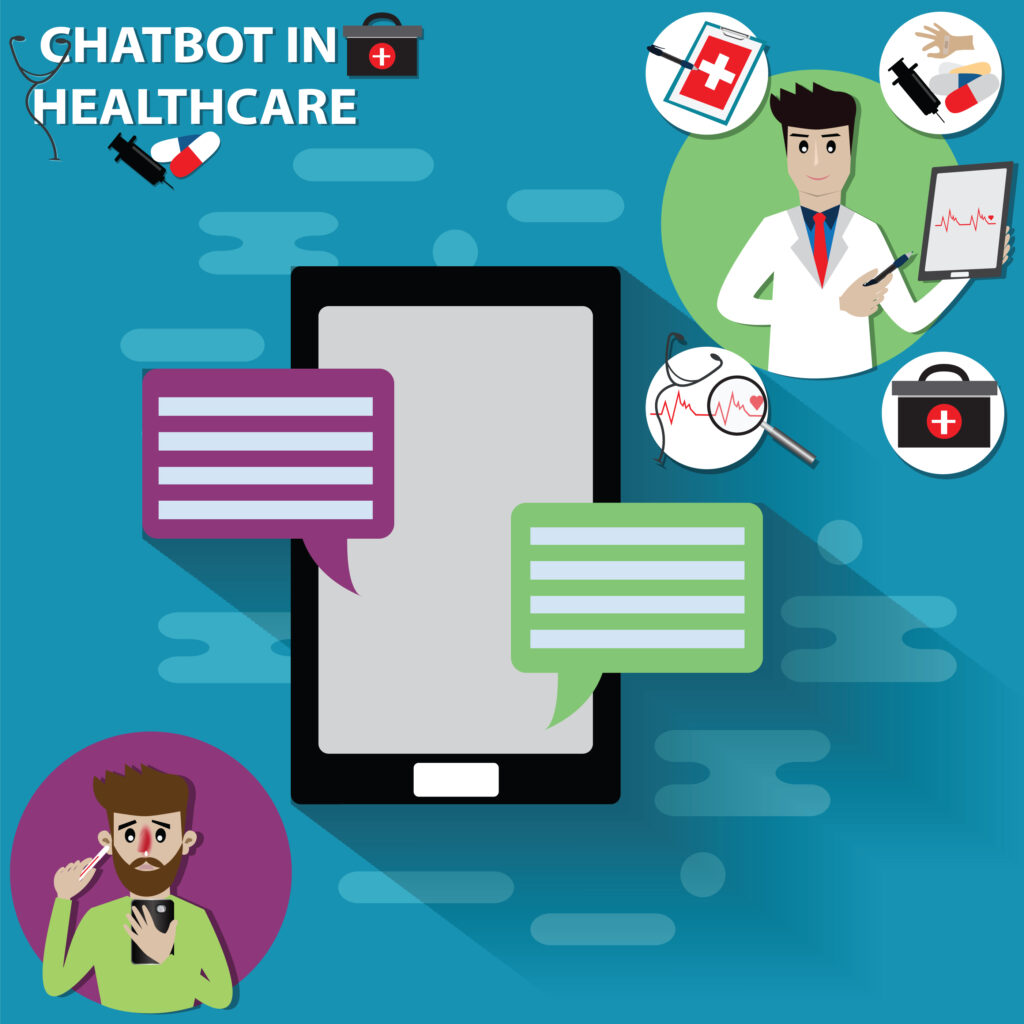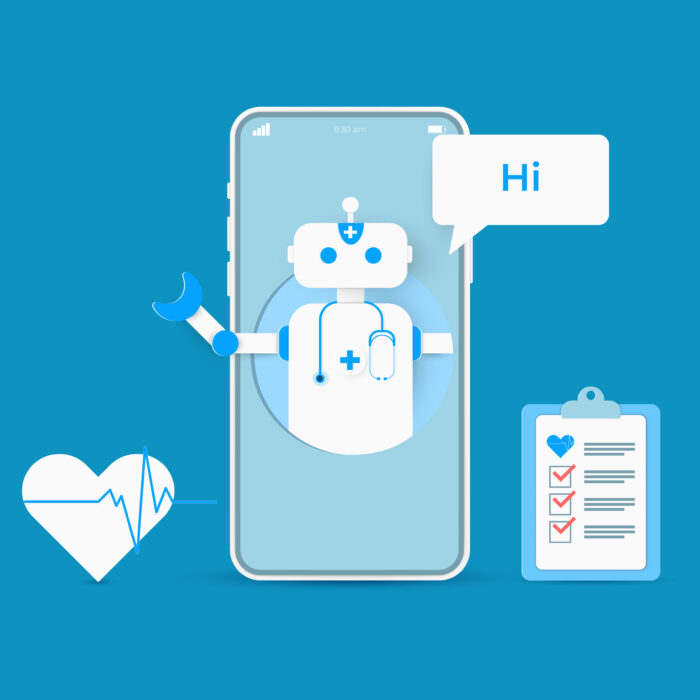Every industry on earth can benefit from the implementation of the right technology and automation. As one of the largest and most important industries in the world – one that quite literally deals with life and death – healthcare is no exception to this.
In recent years, healthcare has been transformed for the better by technology. But the journey isn’t over yet, and healthcare organizations are constantly searching for new, innovative ways to improve through modern innovation.
One example of tech with the potential to positively impact healthcare is the chatbot and, more specifically, the AI chatbot.
In this article, we take a look at what healthcare chatbots are and break down some examples of their potential use cases in the industry.
What are AI chatbots for healthcare?
Like any other type of chatbot, chatbots for healthcare are computer programs designed to talk to humans, usually via an instant messenger interface. The difference with healthcare chatbots is simply that they are used in the context of healthcare.
This could mean they are used in a patient-facing capacity (for example to answer basic questions), used internally by healthcare employees, or a combination of both. In essence, chatbots improve efficiency and save people time by automating key operations.
The integration of AI technology into chatbots for healthcare can help them to function more effectively by recognizing a wider variety of inputs and responding with a greater range of useful answers or actions.
The possible applications are near-limitless, and the technology is constantly evolving to meet the demands of modern healthcare organizations in new, exciting, and transformative ways.
Possible use cases for healthcare
Offering medical information
Arguably the most useful application of chatbots in a healthcare setting is to provide an open line of communication for patients to ask medical questions. Chatbots are, of course, no replacement for a medical professional, but they can provide answers to questions about symptoms, offer general and specific advice, and more.
This can save patients a lot of time and frees up the time of medical workers who may normally need to deal with time-consuming basic inquiries.
Escalating to a medical professional
The nature of healthcare means that some patients’ needs will go beyond what an automated chatbot can offer. However, chatbots can still provide a useful service in these situations.
For example, if somebody’s symptoms imply that they may need medical attention, an AI chatbot may be able to recognize this and automatically escalate the case to a medical professional.
This kind of automated escalation can not only save time for patients and employees but can also ensure that patients are able to access the help they need more quickly.
Booking appointments
One of the most time-consuming elements of patient/healthcare worker interactions is the arranging and modification of appointments. Fortunately, chatbots can significantly simplify and speed up the process for everyone involved.
AI chatbots can be integrated with your existing scheduling systems so that patients can simply open a chat, ask about availability, and book appointments, all without any need for any intervention from healthcare workers.
Gathering feedback from patients
A key driver of improving healthcare services is customer feedback, but high-quality feedback can be challenging to obtain. AI chatbots for healthcare can overcome this challenge by automatically offering a quick, convenient rating request or feedback form to patients. This information can play an invaluable role in driving improvements and increasing patient satisfaction.
Assisting with insurance
In many parts of the world, including the US, insurance policies and claims are a hugely important part of healthcare. This means that any efficiency improvements to the way insurance is handled can save a lot of time and resources.
Healthcare chatbots can streamline many parts of the process. For example, they can answer various questions about claims, or allow people to submit the details of their claims more efficiently.

Dealing with prescriptions
Inquiries and requests about prescriptions make a large proportion of healthcare-related questions. AI chatbots can help to streamline key elements of this process for patients and healthcare workers by automating many responses and actions.
For example, customers could request refills, change their prescription details such as their address, and make various other useful inquiries.
Finding local hospitals and medical practices
AI healthcare chatbots can easily be integrated with GPS-based location data, such as from patients’ smartphones, opening up all kinds of possibilities relating to location-based inquiries. One of the most obvious examples of this is to automatically provide instant information to patients about the nearest hospitals, pharmacies, medical practices, and so on.
Monitoring live waiting times
Waiting times are an unfortunate but sometimes unavoidable part of healthcare. There will always be times when, due to unexpected demand, wait times are longer than they ideally would be.
While patients may not be able to do anything about this, knowing about expected wait times can help to inform their decisions about when to make appointments and attend practices. AI chatbots can provide an interface for patients to inquire about live wait times, helping them to stay informed. This can improve patient satisfaction whilst also saving time for employees to focus on other important tasks.
Automatic personalized notifications
Missed appointments, unread emails, and lack of communication can all cause real disruption in healthcare settings and even negatively impact patient outcomes. AI chatbots can help to avoid these situations by providing targeted, automated notifications and updates about various important services and events. This could cover appointment reminders, phone call requests, test results, and much more.
Onboarding of new patients
Patient intake is another time-consuming but fundamental part of running a healthcare organization. Often, the process can be unnecessarily cumbersome and inefficient, taking up the valuable time of workers and patients alike.
Using specialized chatbots, healthcare organizations can dramatically streamline many parts of the patient onboarding process, offering an intuitive, interactive interface for the submission of various important details.
Learn more about Skil.AI’s chatbots solutions for healthcare
At Skil.AI, we create tailored AI chatbots and virtual assistants for use in any industry, including healthcare. Our chatbots are developed using advanced AI and machine learning technology to ensure they can adapt, integrate, and provide efficiency-boosting benefits to healthcare organizations and patients alike.
Speak to our team today to find out more and see Skil.AI in action.


Leave a Reply
You must be logged in to post a comment.